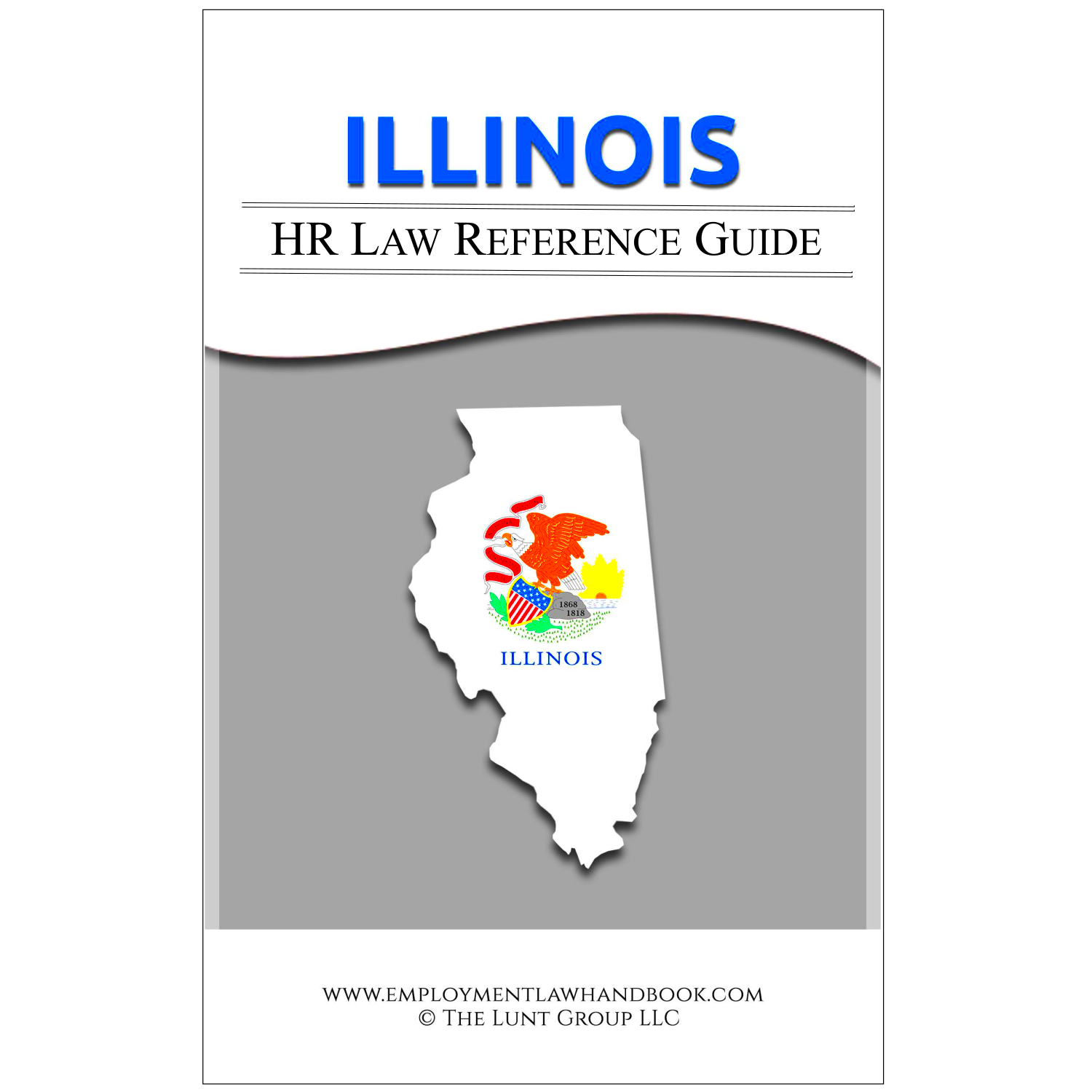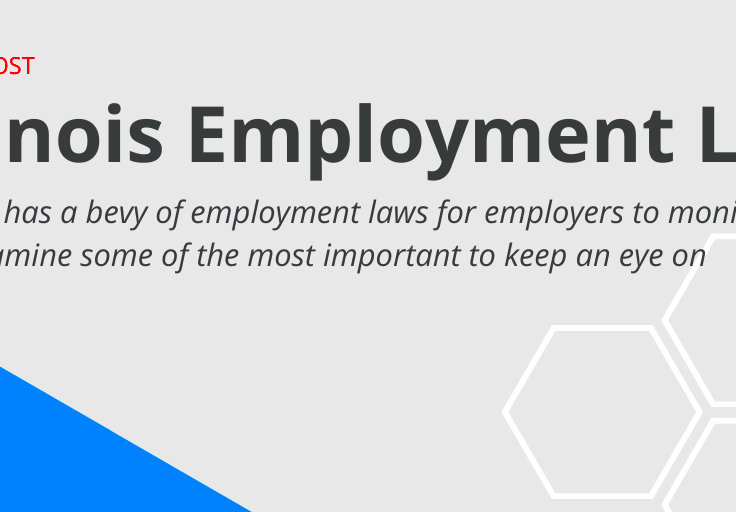Illinois Employment Law Handbook Overview
Understanding Illinois employment law is crucial for both employees and employers. It outlines the rules and regulations that govern workplace rights and responsibilities. This framework helps to protect workers from unfair treatment while ensuring that businesses operate smoothly. Whether you are an employee seeking to know your rights or an employer wanting to comply with legal requirements, a grasp of these laws is essential.
Key Employment Laws in Illinois

Illinois has several key employment laws that shape the workplace environment. Here are some of the most important ones:
- Illinois Human Rights Act: This law prohibits discrimination based on race, color, religion, sex, national origin, age, disability, and sexual orientation.
- Illinois Minimum Wage Law: Sets the minimum wage for employees, which may change based on location and industry.
- Illinois Wage Payment and Collection Act: Ensures employees are paid timely for their work and outlines penalties for non-compliance.
- Illinois Whistleblower Act: Protects employees who report violations of laws or regulations from retaliation.
- Employee Sick Leave Act: Mandates that employees can take time off for their health or family health issues without fear of losing their job.
These laws create a framework that promotes fairness and accountability in the workplace. Understanding these regulations can help prevent legal issues and promote a positive work environment.
Employee Rights Under Illinois Law

Employees in Illinois have several rights designed to protect their well-being and ensure fair treatment. Here’s a rundown of some key rights:
- Right to Fair Wages: Employees have the right to receive at least the minimum wage and be compensated for overtime work.
- Right to a Safe Workplace: Employees can expect a work environment that meets health and safety standards.
- Right to Be Free from Discrimination: Employees are protected from discrimination based on race, gender, age, and other factors.
- Right to Privacy: Employees have a right to personal privacy, including limits on workplace surveillance.
- Right to Take Leave: Employees can take time off for certain health-related issues without risking their job.
Knowing these rights empowers employees to advocate for themselves and ensures that they work in an environment that respects their dignity and well-being.
Employer Responsibilities in Illinois
In Illinois, employers have a range of responsibilities that ensure a fair and safe working environment for their employees. Understanding these obligations is essential for both new and established businesses. By adhering to these responsibilities, employers not only comply with the law but also foster a positive workplace culture.
- Fair Compensation: Employers must pay employees at least the minimum wage and provide overtime pay for hours worked beyond 40 in a week.
- Workplace Safety: Employers are responsible for maintaining a safe work environment, adhering to health and safety regulations set by OSHA (Occupational Safety and Health Administration).
- Non-Discrimination: Employers must ensure their hiring, promotion, and firing practices are free from discrimination based on race, gender, age, or other protected characteristics.
- Employee Benefits: Employers should provide certain benefits, including sick leave, family leave, and health insurance, as mandated by state and federal laws.
- Employee Training: Employers are required to provide training on workplace policies, including safety protocols and anti-discrimination measures.
By fulfilling these responsibilities, employers contribute to a healthy workplace where employees feel valued and protected.
Wage and Hour Regulations
Wage and hour regulations in Illinois are designed to protect workers’ rights to fair compensation. Understanding these laws helps both employees and employers navigate the complexities of wage-related issues.
- Minimum Wage: As of 2024, the minimum wage in Illinois is $15 per hour, with plans for gradual increases in the future.
- Overtime Pay: Employees are entitled to 1.5 times their regular pay for hours worked over 40 in a week.
- Pay Frequency: Employers must pay employees at least twice a month. However, some industries may have different regulations.
- Meal and Rest Breaks: Illinois law mandates that employees working for 7.5 hours or more must receive a 20-minute meal break.
It’s crucial for employers to stay informed about these regulations to avoid potential violations and penalties. Employees should also be aware of their rights regarding wage and hour laws to ensure they receive fair treatment.
Workplace Discrimination and Harassment
Workplace discrimination and harassment are serious issues that can affect employee morale and productivity. In Illinois, laws are in place to protect employees from such behaviors, creating a safer and more inclusive work environment.
Here are key aspects of workplace discrimination and harassment laws:
- Definition of Discrimination: Discrimination occurs when an employee is treated unfairly based on race, gender, age, disability, or other protected characteristics.
- Harassment Defined: Harassment can include unwanted comments, jokes, or behaviors that create a hostile work environment.
- Reporting Mechanisms: Employees are encouraged to report incidents of discrimination or harassment to their employer or human resources department.
- Protection Against Retaliation: Illinois law protects employees from retaliation if they report discrimination or harassment or participate in investigations.
Employers must take immediate action to address complaints and foster a culture of respect and inclusion. By doing so, they not only comply with the law but also enhance employee satisfaction and retention.
Unemployment Benefits in Illinois
Unemployment benefits in Illinois are designed to provide financial support to individuals who lose their jobs through no fault of their own. Understanding these benefits can help individuals navigate their options during tough times. The Illinois Department of Employment Security (IDES) administers these benefits, ensuring that eligible workers receive assistance while they search for new employment.
Here are some key points about unemployment benefits in Illinois:
- Eligibility Requirements: To qualify for unemployment benefits, you must have worked a minimum number of hours and earned a certain amount during a base period. Additionally, you must be actively seeking work.
- Amount of Benefits: The benefit amount you receive depends on your previous earnings, with the maximum weekly benefit set at $484 (as of 2024). This amount may vary based on your work history.
- Duration of Benefits: Benefits typically last for up to 26 weeks, but this may extend during times of high unemployment or through special programs.
- Filing for Benefits: You can file for unemployment benefits online through the IDES website or by phone. It’s essential to gather necessary documents, such as your Social Security number and employment history.
- Requirements During Benefits: While receiving benefits, you must regularly report your job search activities and remain available for work.
Understanding the ins and outs of unemployment benefits can ease the financial burden during challenging times, providing essential support while you search for your next job.
Frequently Asked Questions
Here are some common questions about Illinois employment law and unemployment benefits:
- How do I apply for unemployment benefits? You can apply online at the IDES website or call their office. Be sure to have your employment details handy.
- What if I am denied benefits? If your claim is denied, you can appeal the decision. Follow the instructions provided in your denial letter for the appeals process.
- Can I collect benefits if I quit my job? Generally, if you quit voluntarily without a valid reason, you may not qualify for benefits. However, quitting due to harassment or unsafe working conditions may allow you to qualify.
- How are benefits taxed? Unemployment benefits are considered taxable income. It’s important to plan for taxes when you receive these benefits.
- Can I work part-time while receiving benefits? Yes, you can work part-time, but your earnings may reduce your unemployment benefits. Always report any income you earn while receiving benefits.
If you have more questions, reaching out to IDES or consulting an employment attorney can provide clarity and guidance.
Conclusion
Understanding Illinois employment law and unemployment benefits is vital for both employees and employers. By knowing your rights and responsibilities, you can navigate the workplace more effectively and ensure compliance with legal requirements. Whether you’re seeking assistance after losing a job or striving to maintain a fair work environment, being informed is key. Always stay updated with the latest regulations, as laws may change over time. Don’t hesitate to seek help from legal professionals if you have concerns or questions regarding employment matters. With the right knowledge, you can advocate for your rights and make informed decisions in your career.


